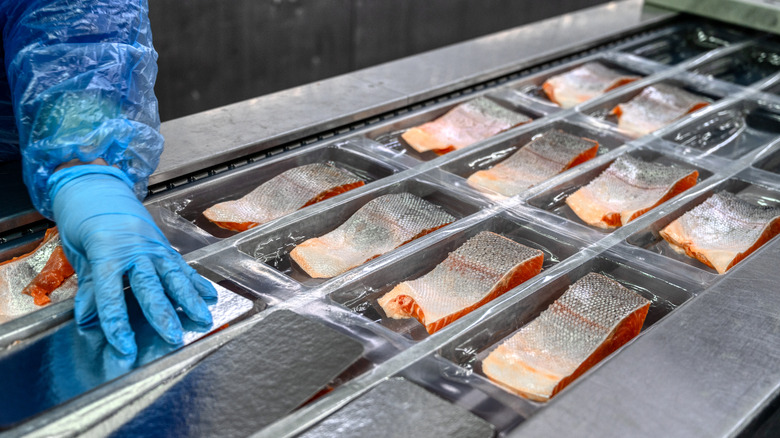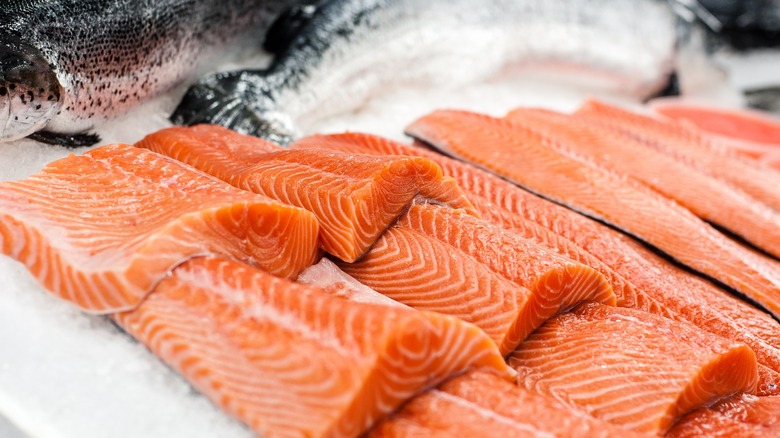Here's Why 150 Tons Of Salmonella-Tainted Fish Is Being Recalled
According to the Mayo Clinic, "eating raw or undercooked meat, poultry, and eggs" is a common culprit of Salmonella infections. Although the USDA is committed to cutting down Salmonella-related illness by 25%, cases persist. A 2021 report by Pew suggests that since 2000, infection rates have remained almost the same, and poultry "is still frequently linked to outbreaks." But you can add fish to the list of notable sources in recent years.
For two consecutive years, seafood has been among the foods investigated by the CDC because a Salmonella outbreak occurred. "When two or more people get the same illness from the same contaminated food or drink," it is recognized as a foodborne outbreak, according to the CDC, which reports that the number of Salmonella infections in the U.S. each year reaches around 1.35 million. In October 2022, Mariscos Bahia, Inc., a California-based wholesale distributor voluntarily decided to recall 150 tons of fish due to Salmonella, per Food Safety News.
Recall linked to fresh salmon
The Food and Drug Administration linked 33 illnesses to "fresh raw salmon" supplied to restaurants by Mariscos Bahia, Inc. In addition, Chilean sea bass, halibut, tuna, and swordfish, may have been tainted, and are part of the recall. Even if restaurants froze potentially contaminated fish, they are advised against using it. Per the agency Food Standards Australia New Zealand, the bacteria can withstand freezing temperatures and may survive if the frozen food is not cooked thoroughly. Twelve of the 33 infected people said they consumed sushi, sashimi, or poke.
Most of the cases occurred in California and Arizona, where people were infected with Salmonella Litchfield. However, the outbreak has also been connected to at least one instance of Salmonella in Illinois. While environmental samples collected at the production plant indicate the presence of Salmonella, the investigation isn't over, per the FDA. People experiencing symptoms should seek medical assistance. Salmonella infections can not only have short-term effects such as diarrhea and abdominal pain but can make infected people more likely to develop reactive arthritis, which in addition to joint problems can cause "painful urination" and irritate the eyes, according to the Mayo Clinic.

